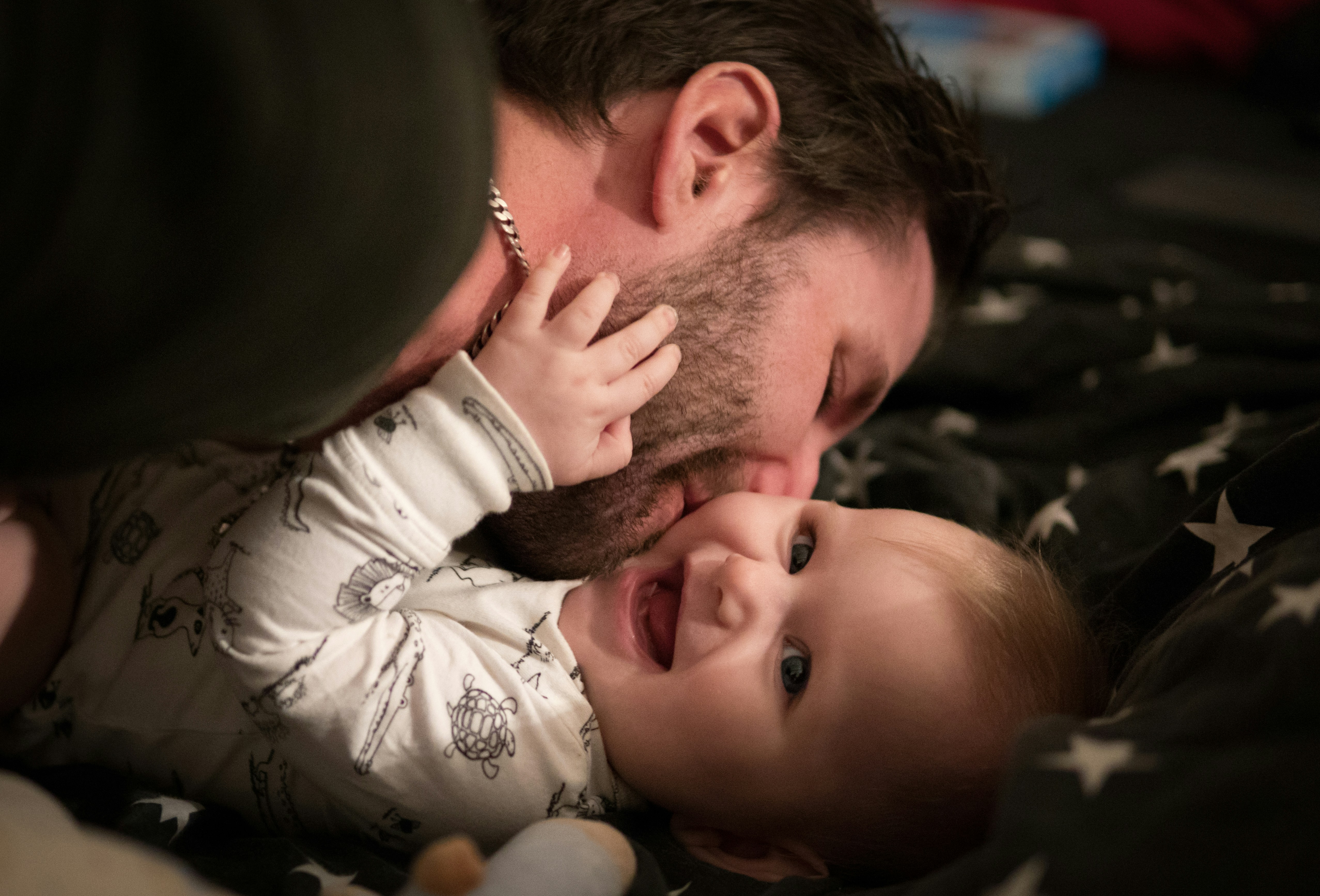
Becoming a parent is one of the most life-changing experiences you can go through. But alongside the joy, it often brings worry, uncertainty, and sometimes very distressing thoughts. Many new parents – both mothers and fathers – experience intrusive thoughts during the perinatal period (the weeks before and after birth).
These thoughts can be alarming, such as worrying about accidentally harming your baby, making the wrong medical decision, or even having disturbing images that feel completely out of character. While mothers are more likely to report intrusive thoughts, research shows that many new fathers experience them too, but are less likely to talk about it.
What are intrusive thoughts?
Intrusive thoughts are unwanted, repetitive, and often upsetting thoughts or mental images that seem to appear out of nowhere. For new parents, they may include:
- Fear of accidentally hurting your baby.
- Worries about your baby getting ill or being harmed by others.
- Doubts about whether you are a “good enough” parent.
- Sexual or violent images involving your baby (which can be especially frightening and shame-inducing).
Having these thoughts does not mean you want to act on them, nor that you are a bad parent. In fact, the very distress they cause is a sign that they go against your true values.
When do intrusive thoughts become a problem?
It is completely normal to feel protective of your newborn. But if intrusive thoughts become obsessive and lead to compulsive behaviours that interfere with daily life, this may be a sign of perinatal OCD (Obsessive-Compulsive Disorder). Examples include:
- Excessively washing bottles, clothes, or toys.
- Avoiding changing nappies to prevent unwanted thoughts.
- Constantly checking on your baby, even waking them to make sure they are safe.
- Isolating your baby from others out of fear.
Left unaddressed, this cycle of thoughts and behaviours can increase anxiety, fuel guilt and shame, and negatively impact your mental health and your family life.
Fathers and intrusive thoughts
For fathers, intrusive thoughts are often overlooked. Social stigma and expectations around “being strong” can make dads less likely to open up. But intrusive thoughts in fathers are just as real and valid, and can impact bonding, confidence, and overall mental wellbeing. Both parents deserve support and tools to cope.
How to manage intrusive thoughts
The good news is that intrusive thoughts can be managed. Evidence-based approaches such as Cognitive Behavioural Therapy (CBT) and mindfulness practices can help you:
- Recognise intrusive thoughts without judgment.
- Challenge and reframe unhelpful thinking patterns.
- Break the cycle of compulsive behaviours.
- Develop healthier coping strategies for stress and anxiety.
It’s also important to remember:
- Intrusive thoughts are common – you are not alone.
- They are not your fault, and they do not define you as a parent.
- Awareness is the first step to reducing their power.
Final thoughts
Perinatal intrusive thoughts affect both mothers and fathers and can be deeply unsettling. But with awareness, the right strategies, and support, you can manage them and protect your mental wellbeing. Parenting is hard enough without battling shame and silence – talking about these experiences helps to normalise them and reduce stigma.
At Pareful, we provide insights and self-help tools based on CBT, ACT, and mindfulness to help parents navigate challenges like intrusive thoughts with confidence and compassion.
Related articles
Explore our wide range of expert-led articles, guides and tips on parental mental wellbeing.


